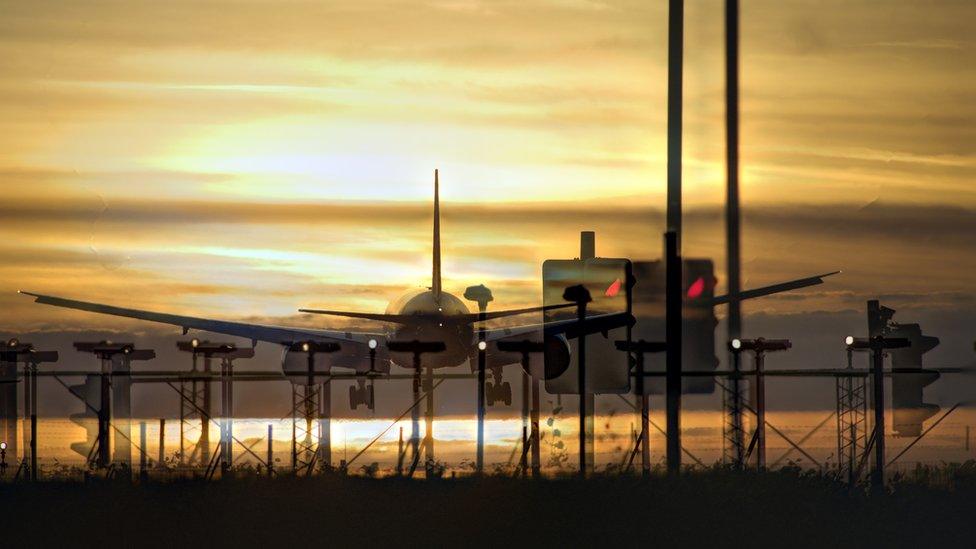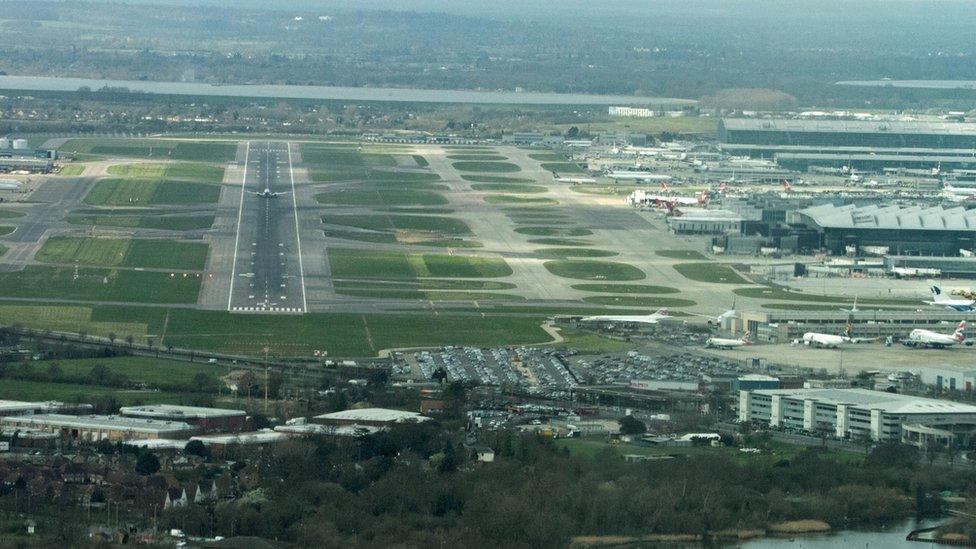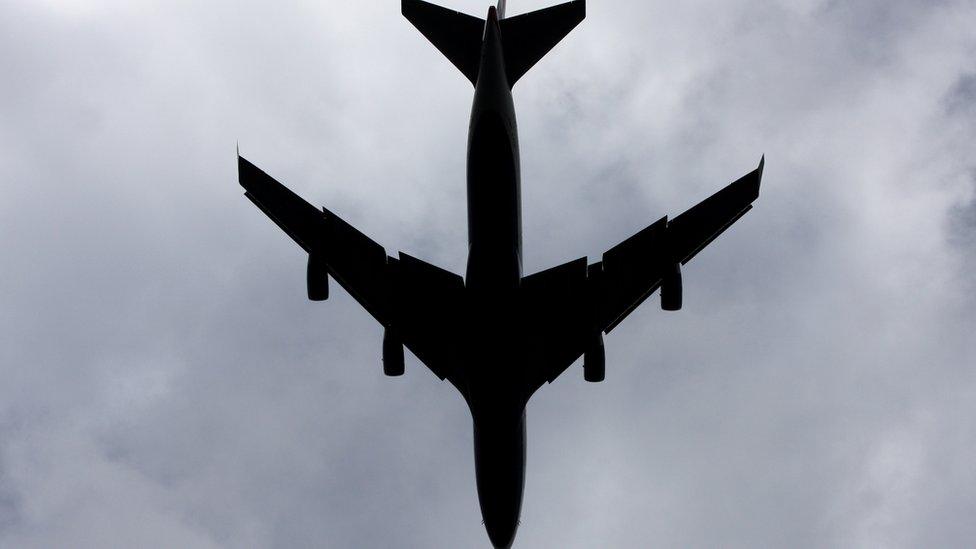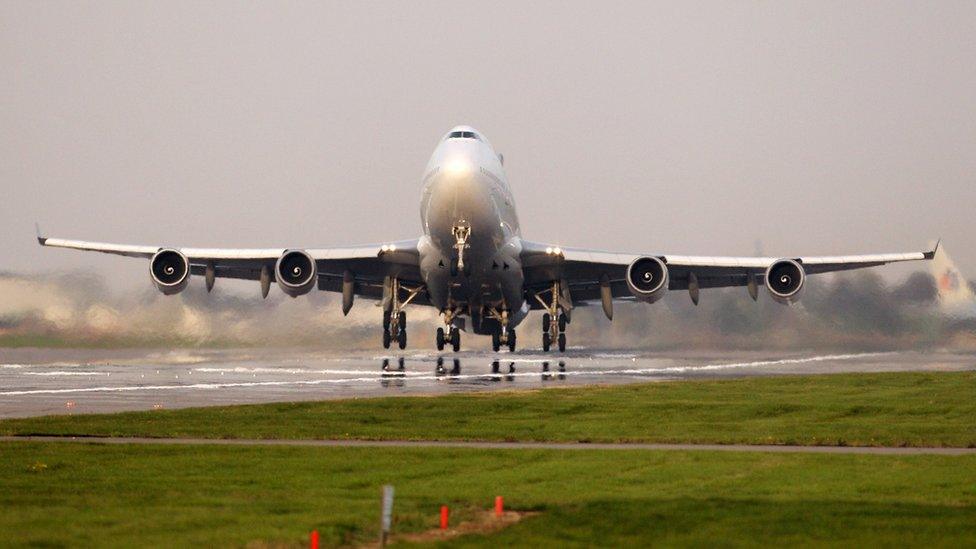Heathrow cost of third runway cut by £2.5bn
- Published

Extra passengers generated by a new runway could be split between existing terminals
Heathrow Airport has cut back its expansion costs by £2.5bn in new proposals for a third runway.
The cut, which reduces the total cost to £14bn, comes from reducing space and breaking building work into stages.
Existing terminals could be expanded to hold an extra 16.5m passengers instead of a standalone terminal for the extra runway.
Various money-saving options will be put to the public as part of a 10-week consultation starting in the new year.
A new runway would increase Heathrow's capacity from 85.5m passengers to 130m.
The Department for Transport has previously said no expansion would mean London's five airports reach full capacity by 2034.
In Monday's announcement Heathrow said the extra passengers generated by the new runway could be split between Terminals 2 and 5.
About 12m passengers would use an extended Terminal 2 and 4.5m an expanded Terminal 5.

A new runway would increase Heathrow's capacity from 85.5m passengers to 130m
An additional 25m passengers would pass through a new building.
The £2.5bn saving would partly be achieved by building smaller waiting areas.
Technology such as checking in online and using electronic gates at passport control means there is less need for open space, the airport said.
'Exorbitant costs'
Some campaign groups continue to criticise the scheme.
Tim Johnson, director of Aviation Environment Federation (AEF), said: "The savings in the project costs do nothing to change our view that runway expansion will cause unacceptable environmental damage."
British Airways' parent company, International Airlines Group (IAG), said Heathrow needs to be more clear on how proposal costs have been calculated.
Chief Executive Willie Walsh said: "The current regulatory system incentivises Heathrow to spend an exorbitant amount of money at passengers' expense and the regulator is unable, or unwilling, to force the airport to provide a detailed cost breakdown."
Heathrow hopes to start building in 2021. It plans to complete the runway by 2025.
- Published24 October 2017

- Published27 July 2017
